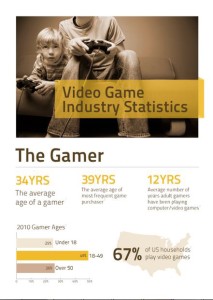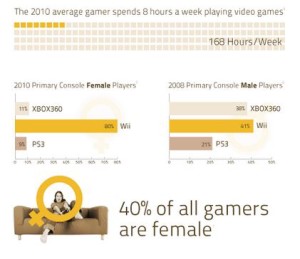 Once associated only with motorcycle and street gangs, tattoos have now become a part of main-stream society. Nearly four-in-ten Millennials have a tattoo (and for most who do, one is not enough: about half of those with tattoos have two to five and 18% have six or more).
Once associated only with motorcycle and street gangs, tattoos have now become a part of main-stream society. Nearly four-in-ten Millennials have a tattoo (and for most who do, one is not enough: about half of those with tattoos have two to five and 18% have six or more).
It seems like this percentage is the same regardless of religious background. The negative stigma of tattoos has been erased among many religious groups; but I have noticed that tattoos among believers sometimes look a little different. Many Millennials are not just getting a tat, but a sacred piece of body art.
When deciding whether or not to get inked, many EA’s do not consider what others would think. They were born before the negative stereotypes of tattoos, and never realized their ink would upset others. The only outside opinion that seems to matter to emerging adults belongs to their parents. One EA said, “My dad got extremely upset with me and shut himself out. My mom even though disappointed, was just happy I got something that wasn’t offensive.” Once seen as a mark of rebellion against parents, I recently heard of a story of a father who was so moved by his son’s sacred ink that he went out and got one to match.
Tattoos are often a sign of their faith, and not a spirit of rebellion. The legal age of tattoos in many states is 18, but people can get them before age 18 with the permission of a parent. Desiring their tattoo not to be a mark of “youthful rebellion,” several emerging adults actually asked for their parents’ permission even after they reached the age requirement. One EA said, “I talked with my parents beforehand and explained the significance [of my tattoo] and that I had been planning it for a while. I knew I did not need their permission, but I wanted to be respectful.”
So before you judge a EA by his or her skin, there are a few things you should know about tattoos.
Sacred Tattoos mark a spiritual turning point.
 Much like the stone monument placed down by the Israelites in Joshua 4, emerging adults want something permanent to mark the movement of God in their lives. Many emerging adults got tattoos to represent a personal struggle in their life including: depression, or death of a friend. One EA writes, “[after a friend’s suicide, my tattoo] was a promise to myself to never turn to suicide as an answer.” Another EA writes that, “I got it when my life was shifting, but I was feeling solid about my faith. It seemed to be a good way to remember, the constant presence of God in it.”
Much like the stone monument placed down by the Israelites in Joshua 4, emerging adults want something permanent to mark the movement of God in their lives. Many emerging adults got tattoos to represent a personal struggle in their life including: depression, or death of a friend. One EA writes, “[after a friend’s suicide, my tattoo] was a promise to myself to never turn to suicide as an answer.” Another EA writes that, “I got it when my life was shifting, but I was feeling solid about my faith. It seemed to be a good way to remember, the constant presence of God in it.”
One Emerging adult said that their tattoo represented a “significant paradigm shift.” Knowing the struggle of keeping spiritual convictions and decisions, emerging adults want a daily reminder of their decision. One EA says, “I decided I should keep my faith towards God growing. I needed something that would last, so I got the shield of faith tattooed on my forearm as a daily reminder.” In a world filled with fleeting circumstances and flaky relationships, the permanence of tattoos can encourage and comfort them in their journey.
Sacred tattoos display a message to others.
EAs have grown up in a pluralistic society, and are conscious of crossing people’s personal boundaries. Desiring to share their faith, tattoos allow Christians a reason to share their faith without being pushy. One EA described it as a “conversation initiation tool” that allowed them to share their faith with others. One EA compared it to baptism, saying, “…it is like baptism for me, a public testimony of your faith to those outside of the church.”
While some get the highly recognizable cross or bible references, EAs prefer something that needs a little explanation. It is not because they are ashamed of their faith, but because they don’t want their tattoo to be bumper sticker that someone reads and walks away, but something that begins a conversation about faith. Some EAs are getting words written in Greek, Hebrew, or Latin phrases that cannot be understood by a simple glance. One described that their Hebraic tattoo comes from, “an ancient rabbinic goodbye, and signifies that disciples would be walking so closely behind their rabbi that the dust that he kicked up as he walked would cover them.”
Several expressed frustration when someone asked flippantly about a tattoo, because it represents such a depth of who they are which includes their faith. One writes, “although it annoys me at work when customers ask because I don’t have time to talk about it at length.” Their tattoos are not done in a spiritual high, but emerge from a deep desire for long-term faith.
Faith is hard. During the difficult times of our journey, we all experience doubts.
Sacred Tattoos are a reminder to emerging adults of their commitment. They know that these marks do not inherently hold spiritual power, but knowing how fleeting the human will can be, they want their faith to stick like the permanence of a tattoo.
Long after the water of baptism has dried, the retreat is over, and the spiritual high has faded, their ink remains. They desire to mark their faith in a concrete way that will substantiate what God has done, and recognize His transforming effect on their life.
 Dr. G. David Boyd is the Managing Director of EA Resources, a non-profit designed to equip parents and churches to minister to emerging adults. He is also the Founder of the EA Network, a national network to connect those who minister to emerging adults.
Dr. G. David Boyd is the Managing Director of EA Resources, a non-profit designed to equip parents and churches to minister to emerging adults. He is also the Founder of the EA Network, a national network to connect those who minister to emerging adults.






 As children grow up, it is important to acknowledge that the historical church has not always stood on the right side of issues. Due to human weaknesses, the church isn’t perfect; and therefore has a few skeletons in her closet. For example, early church leaders claimed that the earth was in the center of the universe, and persecuted those who supported Copernicus’ theory of a sun-centered solar system. Galileo, a scientist was arrested and placed under house arrest for supporting Copernicus’ theory.
As children grow up, it is important to acknowledge that the historical church has not always stood on the right side of issues. Due to human weaknesses, the church isn’t perfect; and therefore has a few skeletons in her closet. For example, early church leaders claimed that the earth was in the center of the universe, and persecuted those who supported Copernicus’ theory of a sun-centered solar system. Galileo, a scientist was arrested and placed under house arrest for supporting Copernicus’ theory. As a Christian, you don’t have to speak for the past. Your child needs to understand that they don’t need to be the defense attorney for Christianity in their Introduction to Philosophy class. Our limited perspective doesn’t allow us too. You were not there, and you will not be held accountable for the failures of others.
As a Christian, you don’t have to speak for the past. Your child needs to understand that they don’t need to be the defense attorney for Christianity in their Introduction to Philosophy class. Our limited perspective doesn’t allow us too. You were not there, and you will not be held accountable for the failures of others.





 Do you sometimes feel as if you identify with Millennials more than your own generation? Is it because you are “young at heart”? Or do you simply have different values than your peers?
Do you sometimes feel as if you identify with Millennials more than your own generation? Is it because you are “young at heart”? Or do you simply have different values than your peers?
